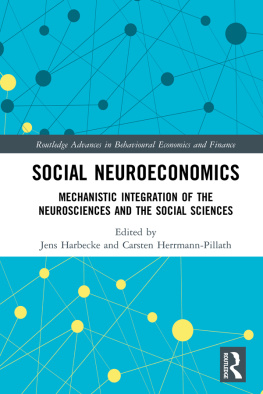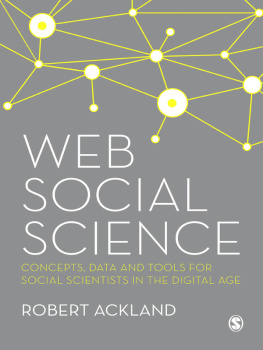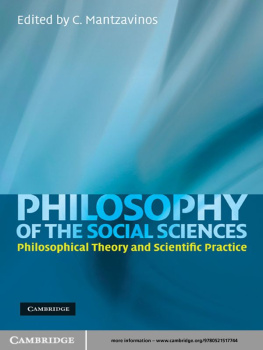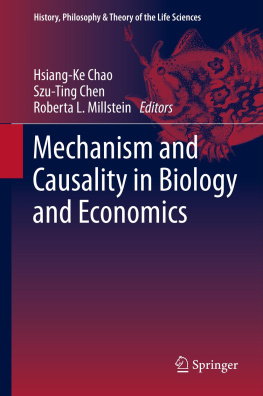ROUTLEDGE LIBRARY EDITIONS:
SOCIAL THEORY
Volume 56
RATIONALITY AND THE SOCIAL SCIENCES
First published in 1976
This edition first published in 2015
by Routledge
2 Park Square, Milton Park, Abingdon, Oxon, OX14 4RN
and by Routledge
711 Third Avenue, New York, NY 10017
Routledge is an imprint of the Taylor & Francis Group, an informa business
1976 Routledge & Kegan Paul Ltd
All rights reserved. No part of this book may be reprinted or reproduced or utilised in any form or by any electronic, mechanical, or other means, now known or hereafter invented, including photocopying and recording, or in any information storage or retrieval system, without permission in writing from the publishers.
Trademark notice: Product or corporate names may be trademarks or registered trademarks, and are used only for identification and explanation without intent to infringe.
British Library Cataloguing in Publication Data
A catalogue record for this book is available from the British Library
ISBN: 978-0-415-72731-0 (Set)
eISBN: 978-1-315-76997-4 (Set)
ISBN: 978-1-138-78409-3 (Volume 56)
eISBN: 978-1-315-76343-9 (Volume 56)
Publishers Note
The publisher has gone to great lengths to ensure the quality of this reprint but points out that some imperfections in the original copies may be apparent.
Disclaimer
The publisher has made every effort to trace copyright holders and would welcome correspondence from those they have been unable to trace.
First published in 1976
by Routledge & Kegan Paul Ltd
76 Carter Lane,
London EC4V 5EL and
Reading Road,
Hen ley-on-Thames,
Oxon RG9 1EN and
9 Park Street,
Boston, Mass. 02108, USA
Text set in Monophoto Times New Roman
Photosetting by Thomson Press (India) Limited New Delhi
and printed in Great Britain by
Unwin Brothers Limited
The Gresham Press, Old Woking, Surrey
Copyright Routledge & Kegan Paul Ltd 1976
No part of this book may be reproduced in
any form without permission from the
publisher, except for the quotation of brief
passages in criticism
ISBN 0 7100 8170 7
Contents
S.I. Benn and G.W. Mortimore
G.W. Mortimore and J.B. Maund
J.B. Maund
R.P. Abelson
G.W. Mortimore
Q. Gibson
P.S. Cohen
S.I. Benn and G.W. Mortimore
C.A. Tisdell
O.R. Young
S.I. Benn
S.I. Benn and G.W. Mortimore
R.S. Peters
R. Brown
P.H. Partridge, S.I. Benn and G.W. Mortimore
G.W. Mortimore
Early in 1971 the Philosophy Department of the Research School of the Social Sciences in the Australian National University decided to sponsor a seminar in the philosophy of the social sciences, and a planning group hit on rationality as a promising theme. Though only six papers were contributed, they seemed interesting enough to warrant making them the nucleus of a larger collection, which the present editors were commissioned to prepare. The collection grew from six to fifteen papers, in part by the addition of new ones contributed at our invitation by four social scientists and philosophers from overseas, in part by splitting and expanding the original six. Of the present contributors, two have held visiting fellowships in the ANU; all but two of the remainder are (or were until recently) faculty members of the ANU. Because we were able to work so closely with most of our fellow contributors, we could hope to achieve an integrated, structured collection, organized around certain key ideas, rather than be content with a parcel of uncoordinated odds and ends. There were, of course, disagreements between editors and authors on substantive questions that could not be resolved; the reader will discover these for himself. Nevertheless, the editors wish to record their appreciation of the patience and good-humoured tolerance exhibited by their colleagues, both local and across the world, in the face of what must sometimes have appeared to be pernickety fault-finding or impertinent invasions of authorial prerogative.
While conscious of the need to avoid tiresome repetition, we have aimed to make each paper self-contained, to the extent at least that a reader interested in the particular field that it surveyed could profit from it without having to read all the preceding ones first. Where reference to another paper would help him, an indication appears either in the text or in the notes. Should these prove inadequate, the selective reader is recommended to go to the Index, which will help him to track down a technical term not fully explained at the point he is at, or assist him in following up a topic treated in several papers.
Nevertheless, because the collection is conceived as a structured whole, the papers will make better sense if read in order. The Introduction lays out certain key distinctions which form the integrating scheme. , written by one or both of the editors, provide the reader with a conceptual guide to the different parts of the collection.
Mr David Dumaresq helped to compile the Index, and, with Mrs Jan Murray, Mr Stephen Holt, and Mrs Jean Norman, gave invaluable help with the tiresome work of checking typescripts, quotations, sources, and proofs. Miss Isabel Sheaffe, Mrs Diane Schmidt, and Mrs Marie Adamson typed and re-typed our manuscript, patiently reaching for clean paper as they watched us ruin their elegant work with a foul scribble of afterthoughts. To all of these we wish to acknowledge our indebtedness.
| Canberra | S.I. BENN |
| May 1974 | G.W. MORTIMORE |
S.I. Benn and G.W. Mortimore
(a) This collection of papers is about the concepts of rationality social scientists use in formulating hypotheses, models, and explanations. Its aim is twofold: first, to display the variety of these concepts, and to analyse, compare, and relate them to one another; second, to show the different roles such concepts play, in theories of very different kinds over a wide variety of fields, and to assess the explanatory and predictive power (or, in the cases of two papers, the evaluative power) that a theory can draw from such concepts. Of course, these aims are not pursued independently; because scientists devise new concepts or modify those of ordinary discourse for the task in hand, one would expect to find that the differences between the concepts or models of rationality used in different areas of inquiry will correspond to the different tasks for which the theories themselves are designed. For instance, we shall find that rationality requirements may range from very strong conditions that one would expect to find fully satisfied only very rarely in real life, to conditions so weak that any intentional behaviour would satisfy them. Strong accounts tend to be used for theories intended to have strong explanatory and predictive power; they may be used perhaps to formulate a theory that sets up an ideal type to which actual conditions may approximate, but which they never fully instantiate. Weak concepts commonly figure in schemata wide-ranging in scope, but having little predictive or explanatory force precisely because they exclude very little observable behaviour; such schemata require to be supplemented, therefore, with further postulates to make them operationally effective..) Whether human beings have rational beliefs or behave rationally is not, therefore, a question that can be usefully asked out of theoretical context; for the answer will depend on the concept of rationality employed in the theory, and the concept itself on the theorys general structure and function.





